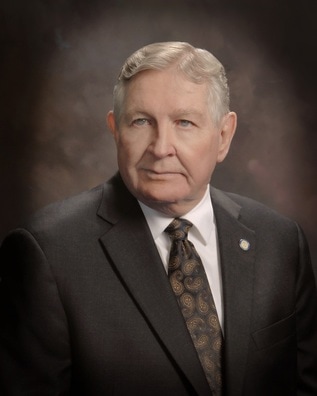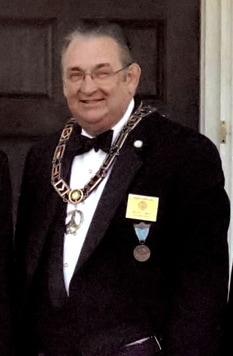
The origin of Masonry began hundreds of years ago as a skill based upon a need. It then became a trade which was organized into a guild. It required diligence and a commitment to quality work. Not just any man was taken in as an apprentice. Men were asked to measure up for a job he sought before he was allowed to do it. More important, no man who was unwilling to work to learn how to produce good work was allowed to remain very long with the Craft.
Speculative Masonry also has the same requirements, but because the work expected is that of improvement of the individual it is not as easy to evaluate the quality or the results. But here again, any man who is unwilling to learn to produce good work should also not be allowed to remain in our Fraternity.
For years we have been telling men who ask about the value of Masonry that what you get out of it is what you put into it. I hear this almost everywhere I go. I have never told a Brother that what you put into Masonry is what you will get out of it. This is a lazy non-answer and the result of it has been that men have been allowed to bring anything they enjoy from their daily lives into the craft and call it Masonry. The reasoning behind this appears to be that so long as what we are doing is good and will make the person a better man. Therefore, he believes this is what Masonry is all about. It cannot be just getting out of it what we put in, or we will have ended up nothing more than what we started with.
Undoubtedly, the world we live in needs more acts of loving kindness and concern for our fellow man. Masonry calls us to perform such as part of our obligation to humanity. However, this is no more the sum of Masonry that it is in math. Every human being should be called to display goodness and love toward their fellow man as it should be with every Mason. But what the observant Mason must ask himself is how Masonry distinguished itself from other fraternal organizations. We must ask ourselves why seek membership in our Fraternity as opposed to any group of well intentioned people who do good things for humanity. When they do seek membership and have truly advanced beyond the door of the Lodge it is our obligation to help them understand the teachings which they are receiving. We must start by understanding that Freemasonry, unlike other fraternities, is not for everyone, and should never be offered as such. Masonry is and was always intended to be an organization that an individual must seek to join. The quality of the individual far outweigh the number of men knocking at our doors, quality of character far outweighs quantity of candidates, and less is more. If we select ten exceptional men to whom he can teach the whole of the craft, each of those ten men can in turn teach ten others. By working with fewer but dedicated men, the Fraternity gains substantially. We thereby gain the survival of the Craft. We have some who believe that more men are needed in order to save dying Lodges from extinction.
The man who knocks at our door, in full knowledge of both the risk that he may be rejected, and yet proceeds anyway because the search for light is that important to him. Only such a man is one who should become a Mason. Why? Because such a man will understand that as with all things worth doing or having, the “true knowledge of the art” takes time, and cannot be achieved in a day. It requires a sincere pledge of time and effort. Men who should be Masons will make time for the Craft. They must not change its principles, methods or techniques in order to take all men at all cost, especially those who have told us that they do not have the time for it. Freemasonry does not offer itself to those who are outside the doors of the Lodge, or even to those who may simply be curious about its contents. The real reason for membership in the Craft is that it must be sought. The experiences of an Entered Apprentice’s and Fellowcraft’s first few months and a new Master Mason’s first years will determine how they view Freemasonry for the remainder of their lives. This is why our commitment to mentoring and the sustaining of fellowship is relevant, now more than ever. I believe our Lodges should strive for better Masons rather than more Masons.
Freemasonry is oldest Fraternal Organization in the world. We owe no explanation to anyone for who we are, what we do, why we do it or how we do it, and no one has the right to demand an explanation from us.
Fraternally,
William B. Rogers
William B. Rogers
Grand Master

 RSS Feed
RSS Feed




